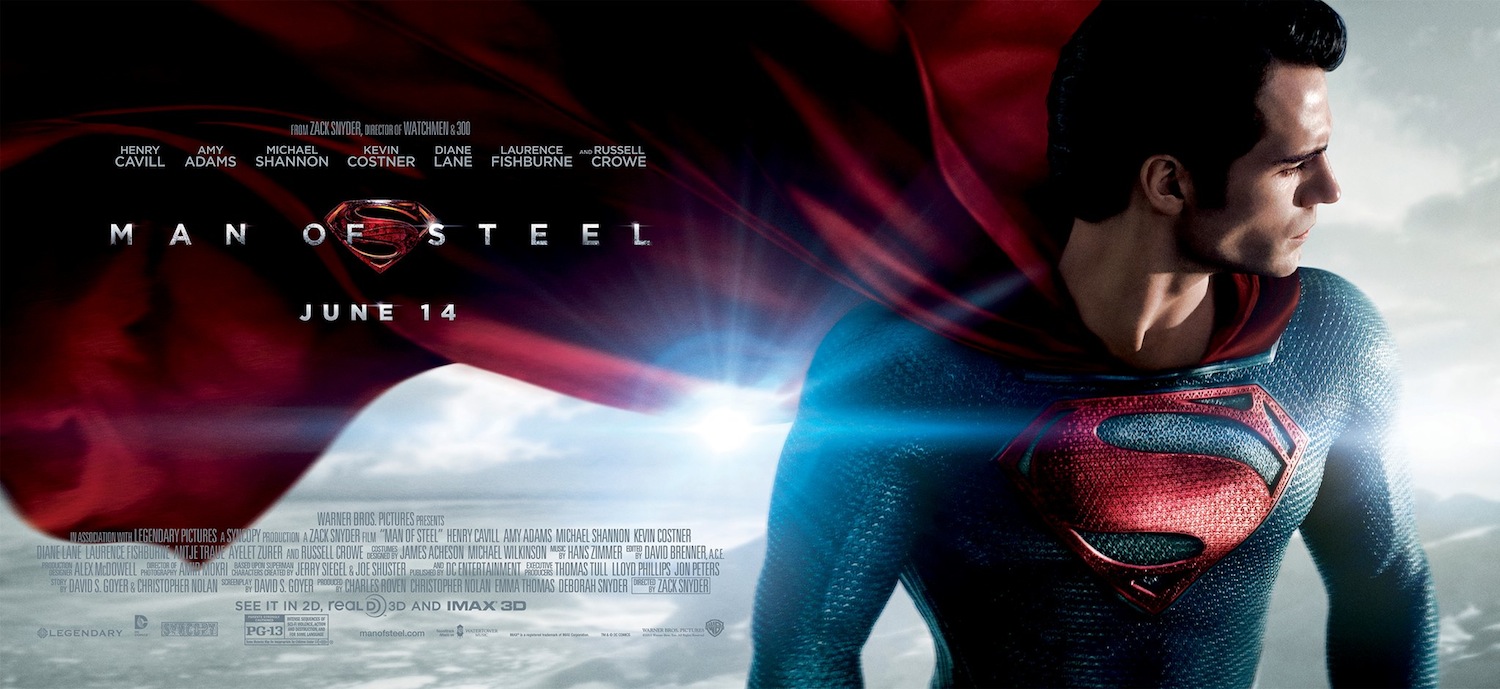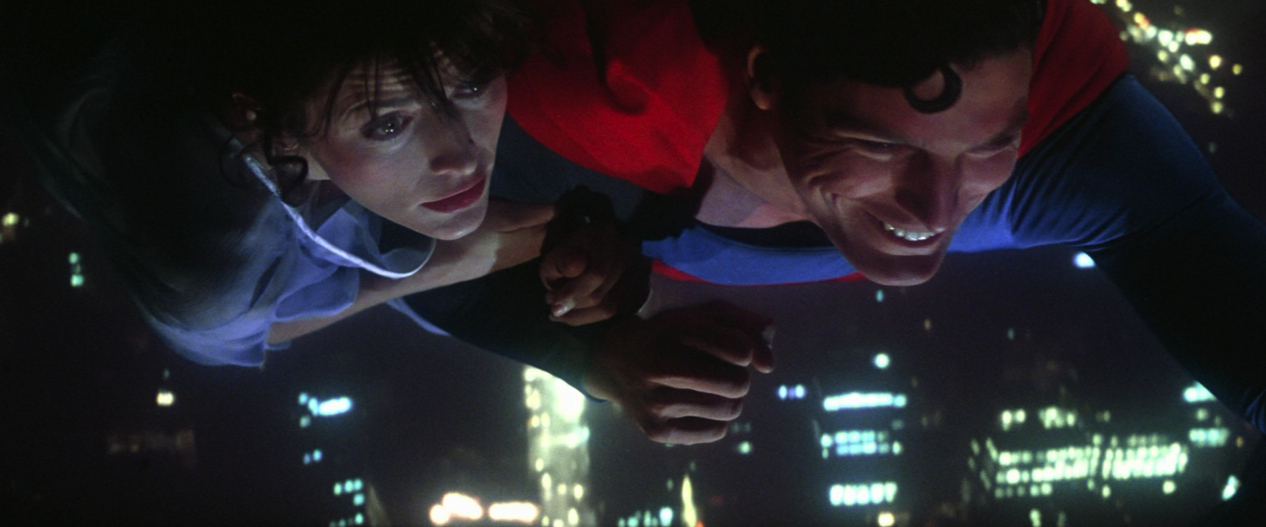Before moving forward with 2014, I want to look back one last time at 2013.
I'm not going to list 2013's scifi winners and losers (Blastr already did that), rank its coolest fandom moments (I agree with Tony "Crazy 4 Comic Con" Kim's list), or the describe the best psychological studies from the past year.
Since I've already started counting down the best science fiction film and TV scores of all time, I thought it would be fun to recap 2013's coolest scifi music.
Here we go!
#7: Doctor Who - Series 7, Murray Gold
2013 was the year I made first contact with Doctor Who. While Doctor Who's 7th season received mixed reviews, Murray Gold's score remained solid and continued to be some of the best music composed for TV. The music blends in some older themes Gold developed for previous seasons and introduces new darker themes which setup the events of the Doctor Who 50th Anniversary and the departure of Math Smith's 11th Doctor. My favorite tracks include "Clara?", "Infinite Potential", "A Secret He Will Take to His Grave", and "Remember Me". I know "Clara?" technically came out during the 2012 Christmas Special, but hey time is all wibbly wobbly, right? If you're a Whovian, check out the Doctor Who 50th Anniversary Collection Soundtrack.
I'm a big fan of Bear McCreary! His score for Battlestar Galactica topped my list of the best scifi music from the 2000s and I love what he's done with The Walking Dead. Europa Report's score combines some of the somber tones McCreary developed for Battlestar with the dread of Walking Dead. The film isn't long, so there isn't much variety to its score, but I enjoyed hearing the different ways McCreary played with a singular theme in "Lift Off", "Landing on Europa", "Mausoleum", "Europa Report (For Solo Piano)", and "A World Other Than Our Own".
I had a lot of fun watching Pacific Rim and a big part of that was Ramin Djawadi's awesome score. I've really enjoyed what Djawadi's did with the Game of Thrones score and was surprised by the variety of music he created for Pacific Rim. From the rock and roll theme (featuring Tom Morello's killer riffs), to the optimistic "Gipsy Danger", the spacey "Shatterdome", the tragic "Mako" theme, the competitive "Physical Compatibility", and the pure popcorn fun of "Kaiju Groupie", the music of Pacific Rim has something for everyone.
A big part of why Gravity was such an awe-inspiring experience was Steven Prince's score. Since director Alfonso Cuarón remained true to the fact that sound cannot travel in the vacuum of space, the only sounds we heard in Gravity (beyond the actor's voices) were Prince's music. There's a lot of similarity between Gravity and Europa Report's scores, particularly in how synthesized sounds are used to intensify suspense. What's interesting about Gravity is how quickly the music transitions between horror and tranquillity, and then back again. Sometimes the score is a little distressing to hear, but there's something about it that keeps me coming back. Check out "Debris", "Don't Let Go", "I.S.S.", "Parachute", and "Gravity".
Oblivion's score is somewhat of a decedent of Tron: Legacy. Both films were directed by Joseph Kosinski, who tapped electronic bands to write each score (M83 with Joseph Trapanese for Oblivion and Daft Punk for Tron: Legacy). I love the integration of electric and traditional instruments, the variety of music on the score, and just how clean everything sounds. My favorite tracks include "Jack's Dream", "Waking Up", "StarWaves", "Earth 2077", and "I'm Sending You Away". I probably won't watch the film again, but I listen to the score all the time.
#2: Man of Steel, Hans Zimmer
The most controversial film score of 2013 was Hans Zimmer's music for Man of Steel. It was criticized as being too moody, too light on themes, and too heavy on percussion. A lot of the controversy was the result of Zimmer following John William's original Superman score, which is one of the greatest themes of all time. /Film's David Chen perfectly captured the differences in the scores in his comparison of the original and new Superman themes:
"If Superman: The Movie is about arriving, about this guy coming to Earth, sharing his amazing powers with us, and saving us…[then] Man of Steel is about yearning, longing, the desire to fit in, an unrequited love of a people."
Zimmer's Man of Steel score fits this version of Superman and sets a bold standard for the DC cinematic universe to come (something we've all been yearning for). Listen to samples including "Elegy from Man of Steel trailer" by L'Orchestra Cinematique's and Zimmer's "Look to the stars", "This is Clark Kent", and "What Are You Going to Do When You Are Not Saving the World?". I can't wait to hear how (presumably) Zimmer integrates this score with Batman's for the upcoming movie.
#1: Her, Arcade Fire, William Butler, Owen Pallett
Her was my favorite scifi film of 2013. The score, a collaboration between Arcade Fire and Owen Pallett (featuring a song by Karen O) is beautifully simple. It features instrumental variations on many of Arcade Fire's recent songs including "Porno" and “Supersymmetry”.
The problem is Her's score isn't' available for purchase ANYWHERE! I kept postponing this article until I had the chance to listen to the score again, but for some dumb reason Warner Brothers hasn't released it. Until they do, you'll have to do with the video below which was posted by Arcade Fire this week.
Even though I've only heard it once, the music of Her left a big impression on me, enough for me to rank it the best of 2013.
Honorable Mentions
James Newton Howard's score for The Hunger Games: Catching Fire almost made my list, but many of the themes were extensions of what he did for the first film. I liked Ryan Amon's Elysium score, but it lacked a a cohesive theme. I've been very critical of Marvel for neglecting to connect themes across their Avengers films, but Brian Tyler created some fun music for both Thor 2 and Iron Man 3.
Notable Exceptions
Along with Bear McCreary, Michael Giacchino is one of my favorite modern composers. His score for 2009's Star Trek set the right tone for the relaunch of the franchise. But there's something missing from his Star Trek Into Darkness score. It does extend Kirk's theme from the first J. J. Abrams film and I really dig the "London Calling" theme for the villain (along with a fantastic nod to The Original Series in "The San Fran Hustle"), but the heart of 2009's score is gone. Maybe the problem is the frenetic pace of the movie. Like the film, I have a lot of fun with the score but it's doesn't live on in my mind like its predecessor.
What were some of your favorite scores from 2013? Let me know in the comments below.














